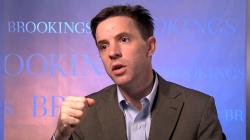Introduction: The world started paying attention to the existence of American neoconservatives in 2002-2003, as they stepped up their campaign in favor of an invasion of Iraq. In the following years, their trajectory was generally seen as a short-lived aberration, a rapid rise and fall ending in the failure that was the Iraq intervention, discrediting once and for all their idealistic militarism. In other words, neoconservatives are now seen as something of the past.
This conventional view, however, is inaccurate on two counts. First, the neoconservatives never had the kind of overbearing influence on the Bush administration many opponents credit them with, including on the Iraq war. Second, not only had this school of thought been active in American foreign policy debates for three decades before the Iraq episode, but it actually never left the Washington political and intellectual scene—even at the time of its greatest ebb, in 2005-2007. On the contrary, neoconservatism remains, to this day, a distinct and very significant voice of the Washington establishment.
After offering a presentation of what neoconservatism really means, and contrasting it with other schools of thought in American foreign policy, this paper lays out the main reasons behind their continued influence in the Obama era—their institutional, intellectual and political dynamism—and argues that neoconservatives will play a meaningful role.


